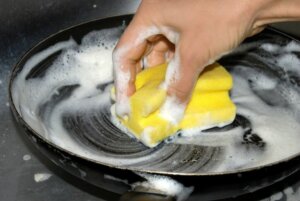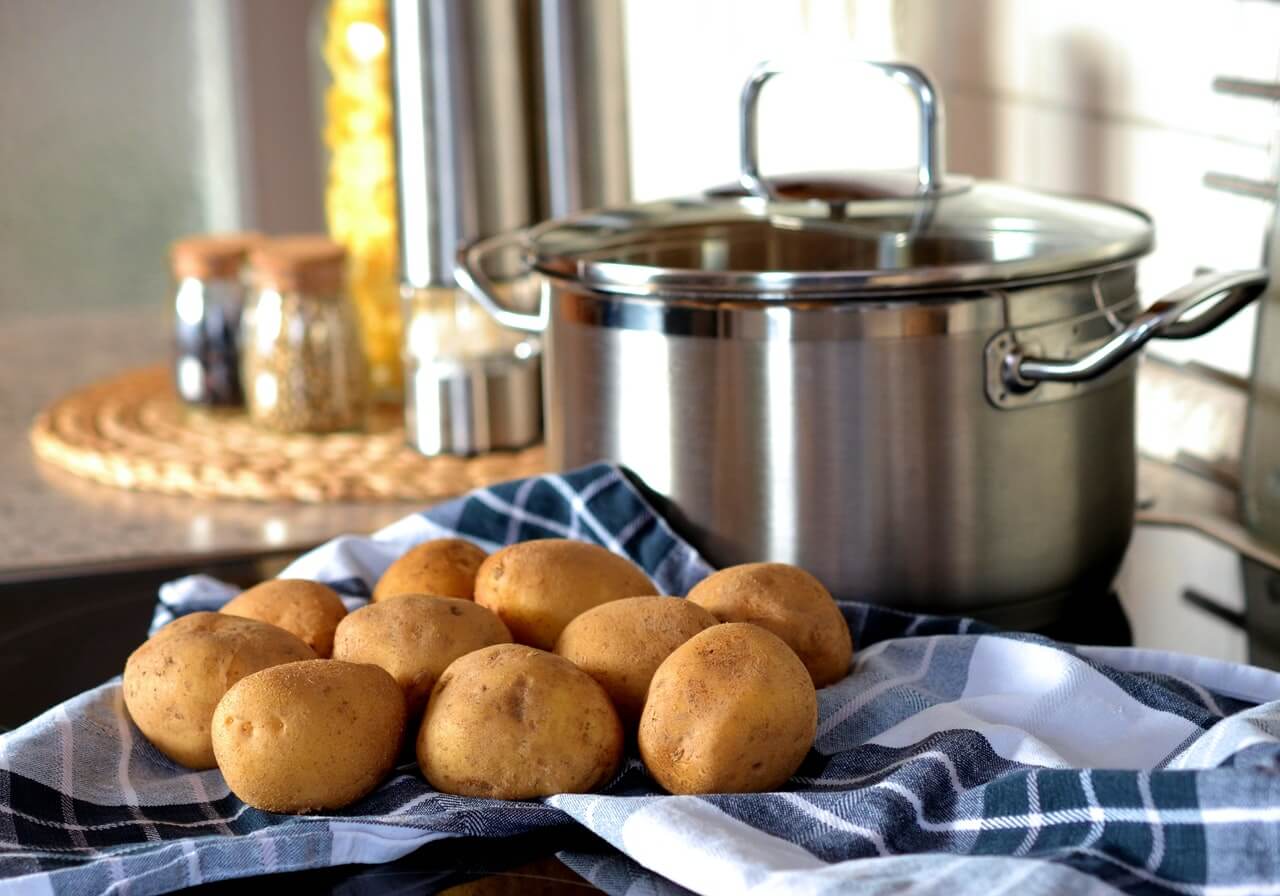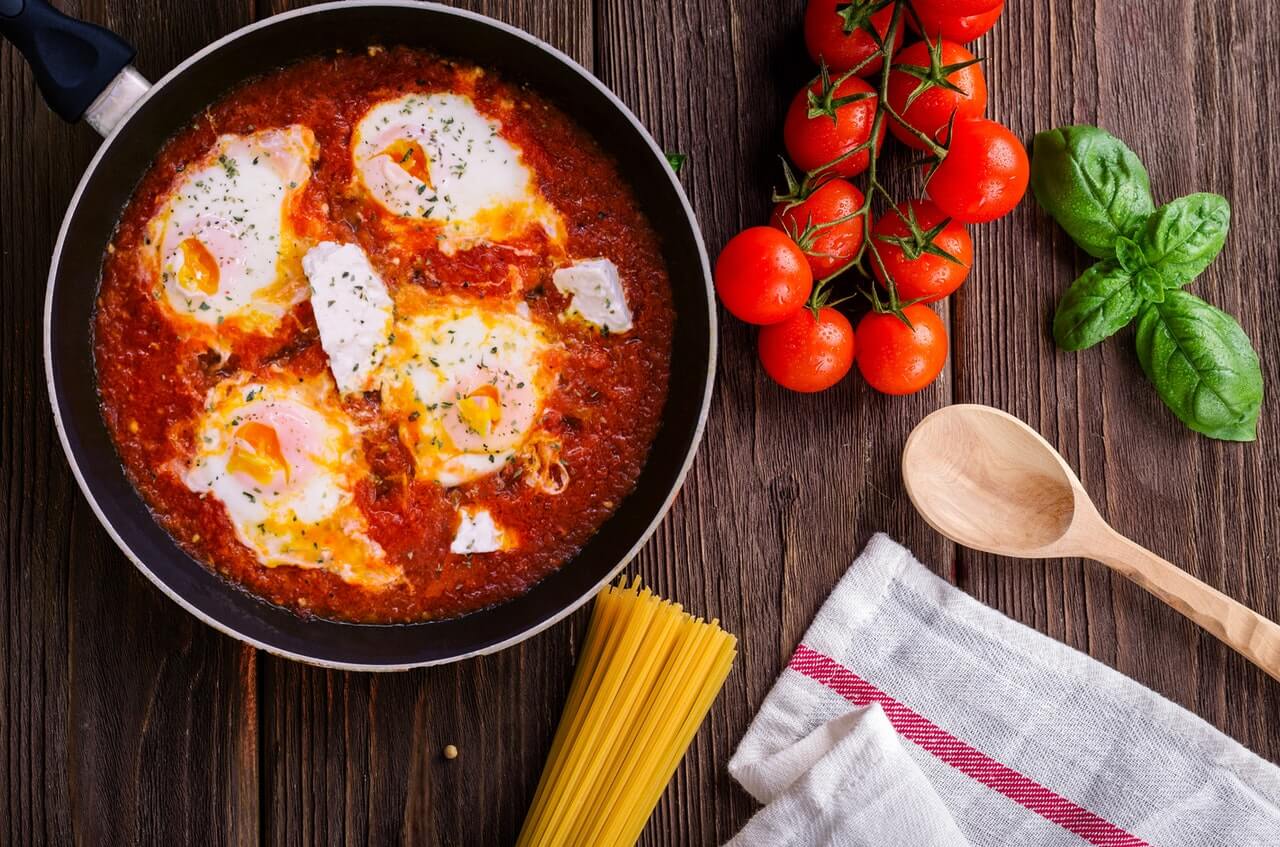Ways To Keep Your Pots and Pans Spotless

Having quality pots and pans makes cooking that much more enjoyable. Not only do they make food cook better and even tastier, but they can also speed up the time spent on this task.
However, they’re not always given the treatment they deserve. When they are not cleaned with the right products or aren’t stored with the care that is due, they end up scratched and damaged, so reducing their life. Below you’ll find some tips on how to take better care of your kitchenware.
Fine-tune your pots and pans

It’s very important to invest in quality kitchenware. This means everything related to food preparation will be easier, not to mention that the utensils will last longer.
On the one hand, you must pay attention to the type of materials you choose and, on the other, learn to give them proper care. See these recommendations to make your kitchenware last a lifetime (or almost).
The first thing you should do
As soon as you buy a pot, pan, or any other kitchen utensil, the first thing you should do is wash it with soap and water. Observe the manufacturer’s instructions regarding its use and care.
A word of advice – non-stick pans should be rubbed with a few drops of oil. Afterward, clean them with absorbent paper and they’ll be ready for use.
Cleaning that doesn’t damage
There can be a habit of rubbing too hard every time you want to clean something. However, this only damages the surfaces. Regardless of the material your pots and pans are made of, avoid abrasive scourers, steel, bleach, and other aggressive products.
Although at first glance these leave everything shiny, they’ll end up scratching the pots. Opt for a soft scouring pad and if you can, it’s better to use the dishwasher.
Keep an eye on temperature changes
You may not know it, but putting hot pans and pots in cold water is a mistake since they could deteriorate. What happens is that with high temperatures the base flattens and if you don’t give it time to cool down, it deforms.
So let your pots cool before you wash them or put them in the dishwasher. This rule applies to any type of material.
How to take care of your pots and pans depending on the material

Stainless steel, non-stick material, cast iron… each has its peculiarities when it comes to washing and keeping things in good condition. Take note!
Non-stick pans
Pans that have a non-stick coating are a good option when cooking certain dishes. They allow you to use less oil, which makes food healthier.
To keep them in good condition, the key is not to subject them to very high temperatures for too long and for cleaning it’s better to use soap and water, and a non-scratch scouring pad.
The spoons and spatulas you use must be made of wood or silicone because otherwise, you can damage them. Of course, when you see that the coating has worn, it’s better to discard them.
Stainless steel pots and pans
Most of your pots and pans are probably stainless steel. This is the most resistant material and you can make it perfect with only soap and water. If stains appear, try putting them on the heat with a liter of water and two tablespoons of vinegar. Let it boil for a few minutes and you’ll see how great they look.
Cast iron
Cast iron pots have many advantages. One of the most important is that they are is free of toxins. They are super resistant and suitable for all types of cooking: induction, ceramic hob, oven, gas.
Before the first use they should be scrubbed with soap and water. Once dry, you have to impregnate them with oil and put them in a hot oven for about an hour.
One of the best known brands is Le Creuset, which recommends not submerging hot pans in warm or cold water since the enamel could crack.
To clean them, simply scrub by hand with soap. Don’t forget to dry them well, so you prevent them from rusting.
Ceramic pots and pans
This is another one of the 100% toxic-free materials. Their care is practically the same as for cast iron and they are also good for any type of kitchen.
In addition to those mentioned, there are also glass, clay, and titanium pots, so you should decide what you want. The price varies a lot since there are more durable materials.
Another important point is that if you’re going to stack them when you store them, use felt or silicone protectors so they do not scratch. They will last longer which is exactly what you want.
Having quality pots and pans makes cooking that much more enjoyable. Not only do they make food cook better and even tastier, but they can also speed up the time spent on this task.
However, they’re not always given the treatment they deserve. When they are not cleaned with the right products or aren’t stored with the care that is due, they end up scratched and damaged, so reducing their life. Below you’ll find some tips on how to take better care of your kitchenware.
Fine-tune your pots and pans

It’s very important to invest in quality kitchenware. This means everything related to food preparation will be easier, not to mention that the utensils will last longer.
On the one hand, you must pay attention to the type of materials you choose and, on the other, learn to give them proper care. See these recommendations to make your kitchenware last a lifetime (or almost).
The first thing you should do
As soon as you buy a pot, pan, or any other kitchen utensil, the first thing you should do is wash it with soap and water. Observe the manufacturer’s instructions regarding its use and care.
A word of advice – non-stick pans should be rubbed with a few drops of oil. Afterward, clean them with absorbent paper and they’ll be ready for use.
Cleaning that doesn’t damage
There can be a habit of rubbing too hard every time you want to clean something. However, this only damages the surfaces. Regardless of the material your pots and pans are made of, avoid abrasive scourers, steel, bleach, and other aggressive products.
Although at first glance these leave everything shiny, they’ll end up scratching the pots. Opt for a soft scouring pad and if you can, it’s better to use the dishwasher.
Keep an eye on temperature changes
You may not know it, but putting hot pans and pots in cold water is a mistake since they could deteriorate. What happens is that with high temperatures the base flattens and if you don’t give it time to cool down, it deforms.
So let your pots cool before you wash them or put them in the dishwasher. This rule applies to any type of material.
How to take care of your pots and pans depending on the material

Stainless steel, non-stick material, cast iron… each has its peculiarities when it comes to washing and keeping things in good condition. Take note!
Non-stick pans
Pans that have a non-stick coating are a good option when cooking certain dishes. They allow you to use less oil, which makes food healthier.
To keep them in good condition, the key is not to subject them to very high temperatures for too long and for cleaning it’s better to use soap and water, and a non-scratch scouring pad.
The spoons and spatulas you use must be made of wood or silicone because otherwise, you can damage them. Of course, when you see that the coating has worn, it’s better to discard them.
Stainless steel pots and pans
Most of your pots and pans are probably stainless steel. This is the most resistant material and you can make it perfect with only soap and water. If stains appear, try putting them on the heat with a liter of water and two tablespoons of vinegar. Let it boil for a few minutes and you’ll see how great they look.
Cast iron
Cast iron pots have many advantages. One of the most important is that they are is free of toxins. They are super resistant and suitable for all types of cooking: induction, ceramic hob, oven, gas.
Before the first use they should be scrubbed with soap and water. Once dry, you have to impregnate them with oil and put them in a hot oven for about an hour.
One of the best known brands is Le Creuset, which recommends not submerging hot pans in warm or cold water since the enamel could crack.
To clean them, simply scrub by hand with soap. Don’t forget to dry them well, so you prevent them from rusting.
Ceramic pots and pans
This is another one of the 100% toxic-free materials. Their care is practically the same as for cast iron and they are also good for any type of kitchen.
In addition to those mentioned, there are also glass, clay, and titanium pots, so you should decide what you want. The price varies a lot since there are more durable materials.
Another important point is that if you’re going to stack them when you store them, use felt or silicone protectors so they do not scratch. They will last longer which is exactly what you want.







